
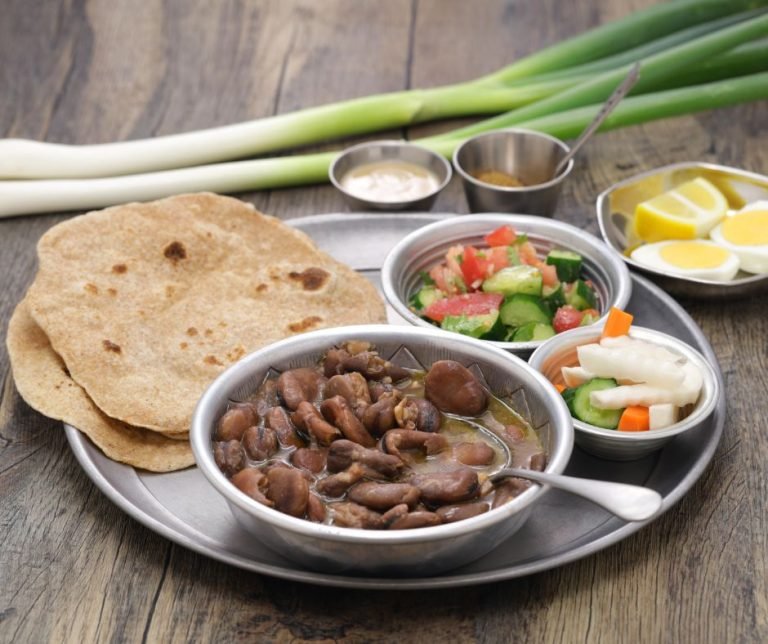
Home » Weekly Blog » What’s for Breakfast in Egypt? A Culinary Adventure with Ancient Navigator
Egypt is a land of timeless wonders, but beyond the pyramids and temples lies another treasure just waiting to be explored—its cuisine. Specifically, Egyptian breakfast is an experience that reflects centuries of tradition, culture, and a unique blend of flavors that invite visitors to slow down and savor the moment.
Whether you’re wandering the bustling streets of Cairo or relaxing by the Nile, breakfast in Egypt offers more than just sustenance. It’s a window into the soul of this ancient country, a reflection of both its history and its vibrant present. As part of our 10- and 14-day small group luxury tours, Ancient Navigator brings you closer not just to the monuments but to the rich culinary heritage that has nourished Egyptians for generations.
In Egypt, breakfast isn’t just a meal—it’s an event. It’s a time for family, friends, and conversation. Egyptian breakfasts tend to be hearty, designed to fuel the body for the day ahead. This makes perfect sense when you consider the historical backdrop: Ancient Egyptians needed strength for their labor, whether it was building the iconic pyramids or farming along the fertile Nile. Today, the same principles apply, and breakfast remains a substantial part of daily life, steeped in tradition and local flavors.
But what exactly does an Egyptian breakfast consist of? Let’s take a delicious journey through the dishes you’ll encounter on your morning table in Egypt.

At the heart of any traditional Egyptian breakfast is ful medames, a dish that dates back thousands of years. Ful medames, simply referred to as ful, is a slow-cooked stew of fava beans, served with olive oil, lemon juice, garlic, and a sprinkle of salt. Often garnished with tomatoes, onions, or a boiled egg, this humble dish has been a staple in Egyptian homes since ancient times.
The beauty of ful lies in its simplicity. It’s filling, nutritious, and adaptable, often customized to the taste of the diner. You can find it served in every corner of Egypt, from street vendors to high-end restaurants. On your Ancient Navigator tour, you’ll savor ful as locals do, perhaps with a side of warm, freshly baked baladi bread—a rustic, whole-wheat flatbread that’s an essential companion to every Egyptian meal.
But what makes ful more than just a dish is its history. Imagine, as you take your first bite, that you’re tasting a recipe enjoyed by Egyptian pharaohs, passed down through millennia. Ful has stood the test of time because it’s both practical and delicious, a legacy dish that holds a place in the hearts and stomachs of Egyptians.
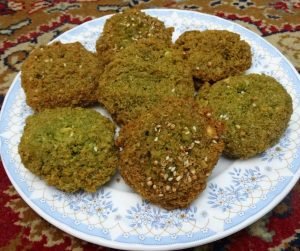
You may be familiar with falafel, the crispy fried balls made from chickpeas, but in Egypt, they do it a little differently. Taameya, Egypt’s version of falafel, is made with fava beans instead of chickpeas, giving it a lighter texture and a distinct flavor. Crispy on the outside and tender on the inside, taameya is often seasoned with herbs like parsley, cilantro, and dill, which give it its bright green color when you break it open.
Served with tahini sauce, pickled vegetables, and baladi bread, taameya is an irresistible treat that’s a must-try when exploring Egypt’s breakfast scene. It’s not just a dish, but a symbol of Egypt’s innovative take on Middle Eastern cuisine. Whether you’re grabbing taameya from a street vendor or enjoying it at a five-star hotel, the taste is consistently fresh and full of flavor.
At Ancient Navigator, we know that culinary experiences are a big part of travel. That’s why our tours offer exclusive stops at local eateries where you can sample taameya alongside other traditional Egyptian fare, providing a true taste of the region’s culinary heritage.
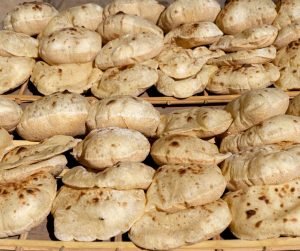
If ful and taameya are the stars of the show, baladi bread is the unsung hero of Egyptian breakfast. Made from whole wheat flour and baked in traditional clay ovens, baladi bread is served with nearly every meal in Egypt. Its chewy, slightly smoky flavor pairs perfectly with everything from ful to cheese and honey.
In many ways, baladi bread is more than just food—it’s a cultural symbol. Bread has been central to Egyptian life since the time of the pharaohs. Even today, Egyptians often refer to bread as “aish,” meaning “life” in Arabic. It’s no wonder, then, that bread plays such a prominent role in Egyptian meals, especially breakfast. On an Ancient Navigator tour, you’ll have the chance to sample freshly baked baladi bread straight from the oven, accompanied by dips, spreads, and other breakfast favorites.
While traditional dishes like ful, taameya, and baladi bread remain at the core of Egyptian breakfasts, modern influences have found their way into the country’s food culture. In cities like Cairo and Alexandria, trendy cafés are adding international flair to breakfast menus, blending Egyptian classics with global trends.
For instance, you might find shakshuka, a Middle Eastern dish of poached eggs in a spicy tomato sauce, served with baladi bread for dipping. Or perhaps a slice of avocado toast topped with crumbled taameya for a fusion of old and new. These modern takes on traditional dishes highlight Egypt’s evolving culinary landscape and offer travelers a chance to explore a dynamic food scene that blends the best of both worlds.
At Ancient Navigator, we understand that part of the luxury travel experience is indulging in these contemporary twists while still appreciating the authentic flavors of the region. That’s why our tours are designed to give you the best of both—classic Egyptian breakfasts as well as a taste of the modern culinary scene that’s taking Egypt by storm.
No Egyptian breakfast is complete without dairy. Two staples you’ll often find on the table are labneh and gebna beida, both of which pair beautifully with baladi bread and fresh vegetables.
Labneh, a thick, creamy strained yogurt, is often drizzled with olive oil and sprinkled with za’atar, a blend of herbs and spices. Its tangy, rich flavor makes it a refreshing counterpart to the heartier ful and taameya, offering a cooling balance to the warmth of the meal.
Gebna beida, or Egyptian white cheese, is another favorite. It’s soft and salty, typically served with tomatoes, cucumbers, and olives. Simple yet delicious, gebna beida is a versatile addition to any breakfast, whether spread on bread or eaten on its own. Both labneh and gebna beida reflect the importance of dairy in Egyptian cuisine, providing not just flavor but a source of protein and calcium to start the day.
During your tour with Ancient Navigator, you’ll have the opportunity to enjoy these dairy delights in settings that range from traditional Egyptian homes to upscale hotel breakfasts, each offering a unique take on these beloved dishes.

Just as important as the food are the drinks that accompany an Egyptian breakfast. Egyptians take their beverages seriously, and whether you’re sipping on a cup of hot shai (tea) or indulging in a sweet, refreshing glass of karkadeh (hibiscus tea), you’re in for a treat.
Egyptian Tea (Shai) is typically black tea, often served with fresh mint or a hint of sugar. It’s a morning ritual in many households, offering a moment to relax and enjoy the simple pleasures of life. Strong and slightly sweet, shai is the perfect complement to a savory breakfast of ful or taameya.
For something a little different, try karkadeh, a deep red tea made from dried hibiscus flowers. Served either hot or cold, karkadeh has a tart, fruity flavor that pairs well with sweet or savory foods. In Egypt, it’s enjoyed throughout the day, but many find it especially refreshing in the morning.
And for coffee lovers, Egypt has you covered with ahwa—strong Turkish-style coffee that’s rich and full-bodied. Served in small cups, ahwa is often brewed with sugar and cardamom, offering a fragrant, bold start to the day. Whether you prefer it black or with a touch of sugar, ahwa is a must-try for any coffee aficionado.
At Ancient Navigator, we believe that breakfast is about more than just food. It’s about immersing yourself in the local culture, and there’s no better way to do that than by enjoying these traditional Egyptian drinks as part of your morning routine.
One of the joys of traveling with Ancient Navigator is the opportunity to experience both the rural and urban sides of Egypt. Breakfast, like so much else in Egypt, varies depending on where you are.
In rural areas, breakfast tends to be simpler and more rustic, reflecting the agricultural lifestyle of many Egyptians. Here, you’ll find heartier dishes made from locally grown ingredients, like fresh cheese, homemade yogurt, and vegetables straight from the farm. Meals are often communal, with families gathering around a large table to share dishes.
In contrast, breakfast in Egypt’s urban centers—especially in cities like Cairo and Alexandria—offers a more cosmopolitan experience. Cafés and restaurants cater to both traditional and modern tastes, offering everything from ful and taameya to croissants and smoothie bowls. The hustle and bustle of city life are reflected in the variety of options, but even in the most modern settings, there’s always a nod to Egypt’s culinary roots.
During your tour, you’ll experience both sides of Egypt’s breakfast culture. From enjoying a simple, farm-fresh meal in a rural village to indulging in a lavish hotel breakfast in the heart of Cairo, Ancient Navigator ensures that every meal is an opportunity to explore Egypt’s diverse food landscape.
Egypt’s breakfasts are a reflection of the country’s rich history and vibrant present. Each dish tells a story, from the ancient origins of ful medames to the modern twists found in urban cafés. Whether you’re savoring a traditional breakfast in a rural village or enjoying a contemporary take on Egyptian classics in a luxury hotel, each meal is a journey in itself.
At Ancient Navigator, we invite you to experience the best of Egypt, not just through its monuments and landscapes, but through its cuisine. Our 10- and 14-day small group luxury tours offer the perfect blend of cultural exploration and culinary indulgence, allowing you to taste your way through this incredible country.
So, what’s for breakfast in Egypt? Come find out for yourself. Let Ancient Navigator guide you on a journey where every meal is a discovery, and every bite brings you closer to the heart of Egypt. Book your luxury tour today, and start your adventure with the flavors of Egypt!
If your travel plans are further out. Get on our wait list and we will let you know when future dates and pricing become available.
Sign up below to get on the wait list. You will be one of the first to be notified when reservations open up.
Required*
Sign up to hear about our upcoming adventures, monthly newsletter, exclusive offers, and more!
Required*
Not Ready to book?
Get regular updates on upcoming tour and special promotions.





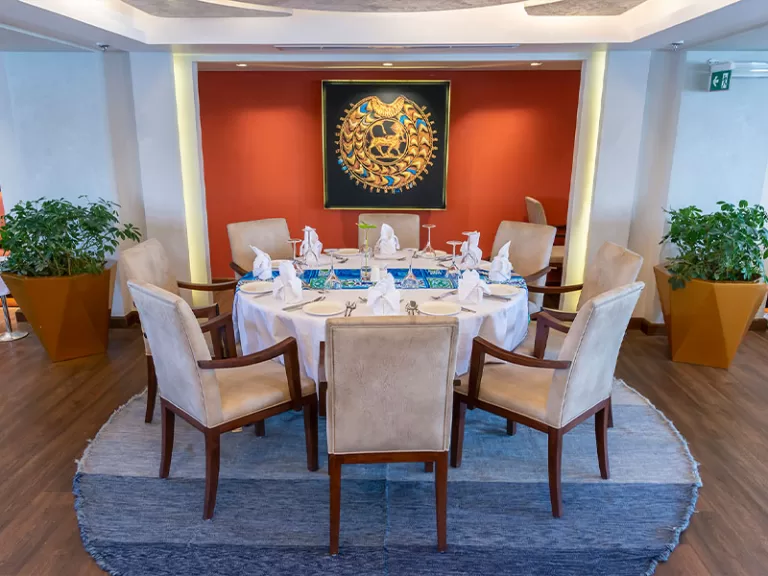
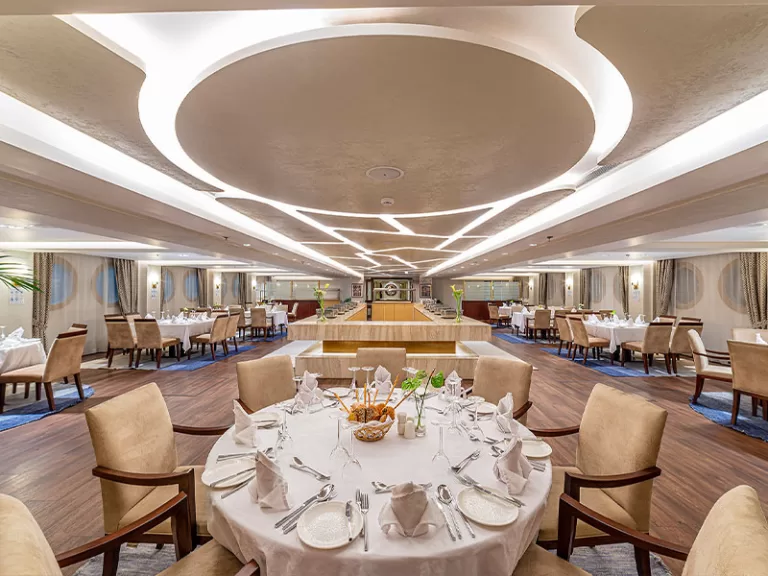
Sign up for our Mailing List to get updates on our current offerings.